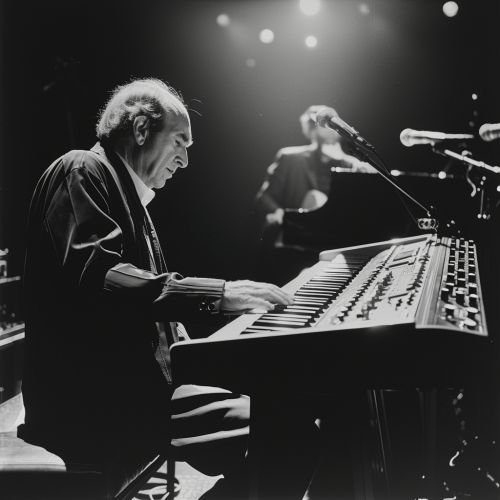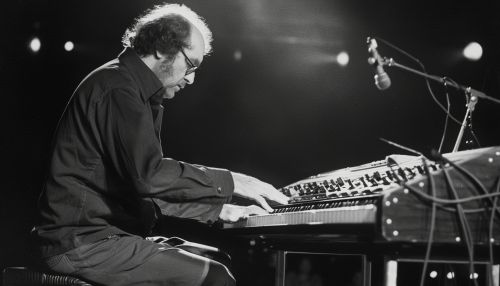Terry Riley
Early Life and Education
Terry Riley was born on June 24, 1935 in Colfax, California. He was introduced to music at a young age by his mother, who was a teacher and amateur musician. Riley studied at Shasta College, before transferring to San Francisco State University where he earned his bachelor's degree in composition in 1955. He later pursued graduate studies at the San Francisco Conservatory of Music and the University of California, Berkeley, where he studied under notable composers such as La Monte Young, Robert Erickson, and Seymour Shifrin.


Career
Riley's early work was influenced by John Cage and the experimental music scene in San Francisco in the 1950s and 1960s. His breakthrough came in 1964 with the composition "In C", which is considered a landmark in minimalist music. This piece, composed of 53 short musical phrases, can be performed by any number of musicians and in any combination of instruments, making it a revolutionary work in the field of composition.
In the late 1960s, Riley traveled to India where he studied North Indian classical music under the guidance of Pandit Pran Nath. This experience greatly influenced his later work, as he incorporated elements of Indian music into his compositions. He also began to experiment with tape loops and delay systems, creating complex layers of sound that became a hallmark of his style.
Throughout the 1970s and 1980s, Riley continued to compose and perform, often collaborating with other artists. He worked with the Kronos Quartet on several pieces, including "Cadenza on the Night Plain" and "Salome Dances for Peace". He also composed music for theater and film, including the score for the film "Lifespan".
In the 1990s and 2000s, Riley's work expanded to include choral and orchestral compositions, as well as solo piano works. His compositions during this period include "The Harp of New Albion", "Chanting the Light of Foresight", and "The Cusp of Magic".
Legacy and Influence
Terry Riley's influence on the music world is profound. His innovative use of repetition, phase shifting, and tape loops has had a significant impact on a wide range of genres, from classical and jazz to rock and electronic music. His work has inspired a generation of composers and musicians, including Philip Glass, Steve Reich, and Brian Eno.
Riley's contribution to the development of minimalist music has been widely recognized. He has received numerous awards and honors, including a Guggenheim Fellowship in 1973 and an Award from the Foundation for Contemporary Arts in 1995. In 2014, on the occasion of his 80th birthday, a series of concerts celebrating his work were held around the world.
